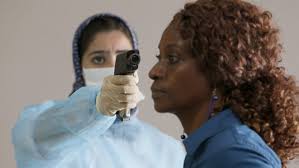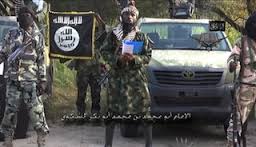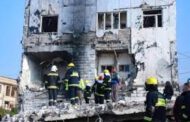NEW YORK (Reuters) – Stepped up efforts by the U.S. to halt the spread of the Ebola virus will start at New York’s John F. Kennedy International Airport on Saturday, where teams armed with thermal guns and questionnaires will screen travelers from West African countries hit hardest by the outbreak.
JFK Airport is the first of five U.S. airports to start enhanced screening of U.S.-bound travelers from Guinea, Liberia and Sierra Leone, where most of the outbreak’s more than 4,000 deaths have occurred.
Nearly all of those traveling to the United States from those countries arrive at JFK, Newark Liberty, Washington Dulles, Chicago O’Hare and Hartsfield-Jackson Atlanta. The new procedures will begin at the other four airports next week.
The Centers for Disease Control and Prevention said the airport screening is just one aspect of an overall strategy to fight the spread of Ebola.
“Because we want to protect the American public, we are taking a tiered approach,” said CDC spokesman Jason McDonald.
But even before authorities start checking passengers for fevers, critics questioned whether the screenings would prove effective at stopping travelers infected with the often fatal Ebola virus from entering the country.
JFK is the U.S. entry point for nearly half of the roughly 150 travelers who arrive daily from the three West African countries, and those flights amount to about one-tenth of 1 percent of all international daily arrivals to the airport, McDonald said.
The Department of Homeland Security’s Customs and Border Protection (CBP) will conduct the screenings under CDC direction, McDonald said.
Using FDA-approved infrared temperature guns, the CBP staffers will check for elevated temperatures among passengers whose journeys began or included a stop in one of the three West African countries.
Screeners will also assess passengers for signs of potential illness and ask them to answer questions about their health and whether they may have come into contact with an Ebola patient.
Those with a fever or other symptoms or possible exposure to Ebola will be referred to the CDC, which will determine next steps. Health authorities may decide to take a person to a hospital for evaluation, testing and treatment, or to quarantine or isolate the patient under federal law, according to the CDC.














